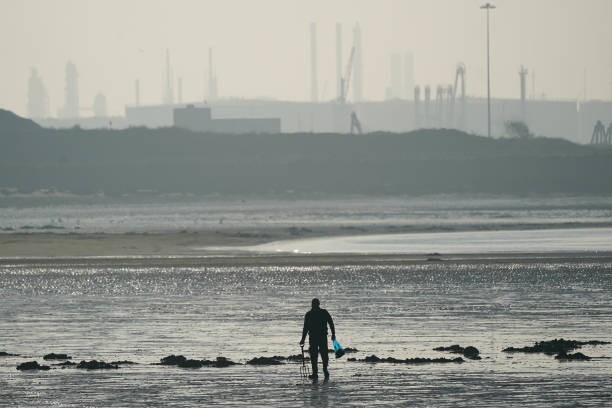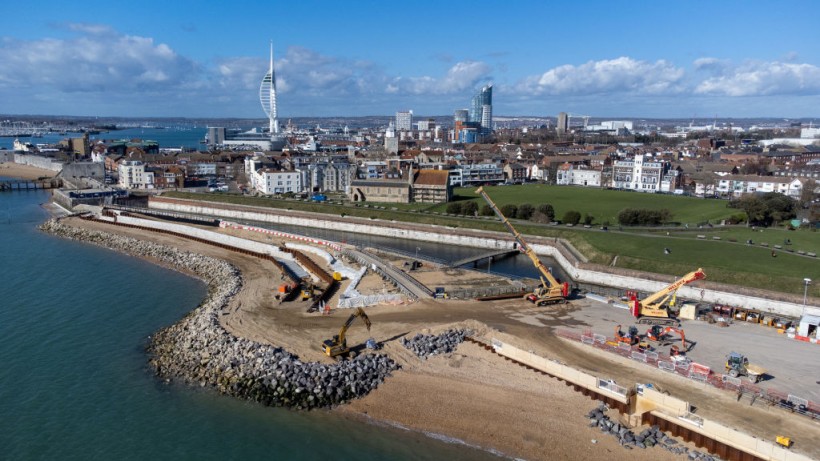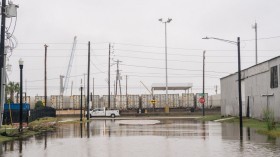A survey claims that by 2050, over 200,000 houses in England will have to be abandoned owing to increasing sea levels.

It investigates where water will inflict the most harm, as well as whether or not defenses are technically and financially possible.
Decades of Sea Level Rise
Scientists agree that decades of rising sea levels are unavoidable, and the government has said that not all properties can be spared.
According to the research, sea-level rise will put pressure on about a third of England's shoreline.
"It will simply not be viable to hold the line around the coast," says Paul Sayers, the report's author and a flood and coastal risk specialist, adding that difficult choices would have to be made about what is realistically protected.
"These are the locations we're going to hold, and these are the places we're not going to hold," she says. "We need an open and honest discussion about how we're going to do it and help the affected people."
The research was published in Ocean and Coastal Management.
Also Read: Sea Level Rise to Affect New Zealand Sooner than Expected
Studying the Assessment

According to Sayers' assessment, the South West, North West, and East Anglia have the largest number of flood-prone houses in England. Rising sea levels not only raise the risk of coastal flooding and estuarine flooding but also hasten coastal erosion by causing larger, more forceful waves.
For the first time, the study looks at areas where upgrading defenses would be prohibitively expensive or technically unfeasible. It was discovered that by 2050, assuming a conservative 2°C rise in sea level caused by temperature increases by 2100, up to 160,000 properties may need to be relocated. This is on top of the 30,000 to 35,000 homes previously recognized as vulnerable.
"There's no real engineering limit to how effectively we can defend ourselves," Sayers told BBC News on the beach at Happisburgh in North Norfolk. "For London, for example, the Thames barrier and all the walls and embankments continue to be increased in reaction to sea-level rise."
"Under existing financing criteria, there won't be enough money to safeguard everyone."
Happisburgh, a little charming ancient Anglo-Saxon settlement with a distinctive red-and-white-striped lighthouse, is unlikely to receive any more funding for sea defenses. And its coastline is rapidly eroding.
In 2013, the ground beneath Bryony Nierop-home Reading's collapsed into the sea, and a safety barrier was installed across her street, which suddenly terminates at the top of the cliff.
The red-and-white sign reads, "Road Closed." The 77-year-old has been chronicling the eroding pavement for the past six months with scribbled dates and numbers.
"It was eight meters in December 2021, and now it's 3.4 meters," she sighs.
Bryony has cause to be concerned about the erosion. When her cottage was demolished, she opted to relocate just 50 meters up the road to a home similarly on its way to the sea. She estimates that it will persist until 2030.
Bryony disagrees with the district council's decision that additional sea defenses should not protect Happisburgh. She cites a £20 million operation close up the coast, where vast volumes of sand were deposited on the beach to safeguard a gas station.
She says, "It's simply such a pathetic and unpatriotic mentality." "I believe we should be stating that our nation, our land, our agricultural land, is vital enough that funds should be diverted to it."
Bryony has started an organization hoping to rekindle interest in some new marine defenses.
"It's the Save Happisburgh Action Group," she explains. "The term Shag is a seabird that needs to struggle for existence against terrible circumstances, which is suitable for Happisburgh."
Everyone does not share Bryony's viewpoint in Happisburgh. And her campaign isn't the only one.
Malcolm Kirby, one of the founders of Happisburgh's Coastal Action Group, says, "The water is incredibly strong. Even more powerful than Boris Johnson."
Pathfinder Project
The Pathfinder project in Happisburgh is now being studied as a model for how the rest of the UK should adapt. North Norfolk, along with East Yorkshire, has been selected to participate in a £36 million Coastal Transfer Accelerator Programme, which will investigate concepts such as creating "green buffer zones" between settlements and supporting the "managed transition of populations off high-risk territory."
Related Article: Fear, Uncertainty, and Doubt Against Global Warming Remain High Despite Pressing Evidence
For similar news, don't forget to follow Nature World News!
© 2024 NatureWorldNews.com All rights reserved. Do not reproduce without permission.


![Plastic Pollution: Scientists Include Spores of Plastic-Eating Bacteria ‘Bacillus Subtilis’ to Develop 'Self-Digesting Plastic' [Study]](https://1471793142.rsc.cdn77.org/data/thumbs/full/70396/280/157/50/40/plastic-pollution-scientists-include-spores-of-plastic-eating-bacteria-bacillus-subtilis-to-develop-self-digesting-plastic-study.jpg)

![Venomous Centipede Could be Game-Changer and Save Lives of People with Kidney Disease [Study]](https://1471793142.rsc.cdn77.org/data/thumbs/full/70407/280/157/50/40/venomous-centipede-could-be-game-changer-and-save-lives-of-people-with-kidney-disease-study.jpg)
